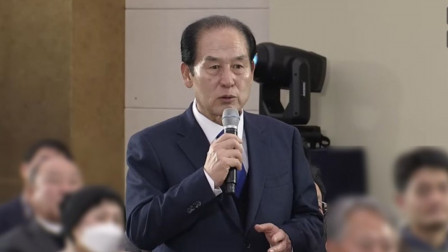
Mexico ( Credit:TIN)
Mexico: President Claudia Sheinbaum was greeting people calmly in a crowded street environment. Many citizens were recording and smiling around her. Among them, one man slowly moved closer than acceptable. He touched her shoulder lightly without permission. The move looked small from a distance. But it crossed a deeply personal boundary. Such behavior shows attitudes that ignore a woman’s right to her own space.
The man did not treat her like the President of the country. He treated her like a woman whose personal space could be entered freely. His behavior reflected a mindset that believes women’s bodies are open for contact. Power and authority do not automatically change how society views women. This moment exposed the belief that women’s consent can be bypassed. The act was less physical and more psychological. It demonstrated entitlement.
Her bodyguard noticed the movement instantly and reacted with calm firmness. He positioned himself between them with practiced control. His response prevented further contact without creating panic. The President took a slight step backward but maintained dignity. The situation was handled quickly before it escalated. But the need for intervention itself tells the real story. A leader still needed protection from uninvited touch.
CRAZY moment man GROPES Mexico’s President Claudia Sheinbaum
— RT (@RT_com) November 4, 2025
Then TRIES to kiss her before security finally wakes up
How was security THIS slow to react? pic.twitter.com/vaECXy0bCW
President Sheinbaum continued smiling softly to maintain the environment. She avoided showing discomfort or frustration publicly. Her calmness was leadership and discipline in motion. But every woman recognizes the discomfort of unwanted closeness. Her smile was not acceptance; it was strength. She chose stability over reaction. Yet the emotional reality of that moment remains unspoken.
The video spread rapidly across social platforms. People responded with strong opinions and emotional reactions. Some argued about security efficiency. Some defended open public interaction. But many pointed out the real issue: boundaries and consent. The conversation shifted from safety to societal attitude. The focus moved to how women’s physical space is still seen as flexible.
Mexico made history by choosing a woman to lead the nation. But social mindset changes slower than political milestones. People may respect her authority publicly. Yet many still view her body as accessible without permission. This moment highlighted the gap between symbolic progress and internal behavior. Power changed, but habits did not. The conflict is not political but cultural.
Respect is not just about position or title. It is also about a person’s physical boundaries. No one has the right to touch another without clear consent. Not admiration, not excitement, not familiarity justify such actions. Until society acknowledges this, equality remains incomplete. True change arrives only when behavior changes with power. Otherwise, women will continue fighting for space even after winning power.








Copyright © 2026 Top Indian News
